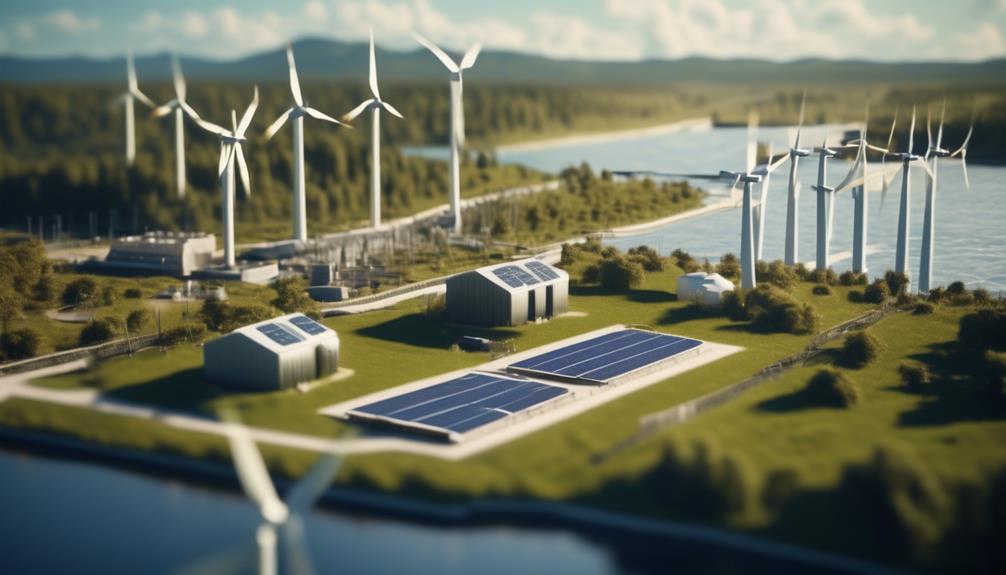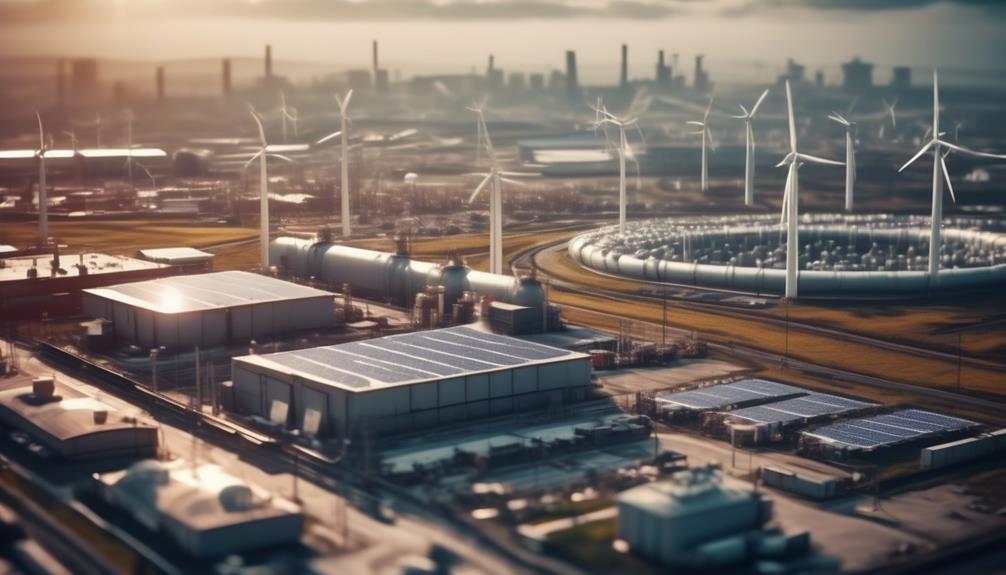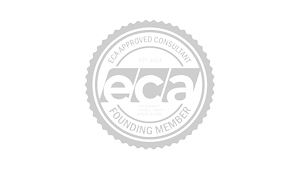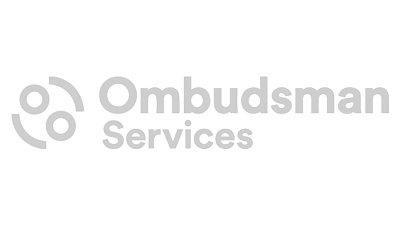In an era where both environmental sustainability and cost efficiency are paramount, businesses across the globe are tirelessly searching for ways to optimise their energy consumption. The quest for energy efficiency is not just about reducing utility bills; it’s about embracing a sustainable operational model that aligns with the growing eco-conscious consumer base and regulatory pressures. This landscape often leaves companies navigating the complex maze of modern energy solutions, wrestling with outdated systems, and striving to engage a workforce that’s not always aware of how their habits impact the company’s energy footprint.
Drawing from years of experience in helping businesses transform their energy use, this article delves into eight practical strategies that have proven effective in achieving significant energy savings and enhancing environmental stewardship. Tailored specifically for companies eager to refine their energy management practices, these insights are designed to resonate with decision-makers and sustainability champions alike, offering a blend of technological innovation and behavioural change tactics.
As we explore these strategies, readers can anticipate finding actionable solutions that address their most pressing energy concerns, encouraging a journey towards a more efficient, sustainable, and cost-effective operation.
Key Takeaways
- Real-time tracking and analysis of energy usage is essential for identifying areas of high energy usage and prioritising energy-saving efforts.
- Implementing energy-efficient upgrades and regular maintenance practices, such as using LED bulbs, can significantly reduce energy consumption and prolong equipment lifespan.
- Employee training and engagement play a crucial role in promoting energy-saving practices and fostering a culture of sustainability within the organisation.
- Integrating smart technology and renewable energy sources, such as real-time energy monitoring and centralised control, can optimise energy management and reduce reliance on traditional energy grids.
Energy Monitoring
Energy monitoring is a critical component of effective business energy efficiency strategies, allowing for real-time tracking and analysis of energy usage. By implementing energy monitoring systems, businesses can gain valuable insights into their energy consumption patterns, enabling them to identify areas of high energy usage and prioritise energy-saving efforts.
One of the key benefits of energy monitoring is the ability to optimise energy usage. By continuously monitoring energy consumption, businesses can identify inefficiencies and implement measures to reduce energy waste. This can include the use of alerts and notifications to identify and address abnormal energy usage patterns, as well as benchmarking energy performance to track progress towards energy efficiency goals.
Furthermore, energy monitoring serves as a tool for continuous improvement and driving behaviour change towards energy-saving practices. By providing real-time data on energy usage, businesses can engage employees and encourage them to adopt energy-saving behaviours. This can range from simple actions like turning off lights and equipment when not in use, to more complex initiatives such as implementing energy-efficient technologies and processes.
Energy Audit and Analysis
To effectively assess energy consumption and identify areas for improvement, businesses often conduct comprehensive energy audits and analysis. An energy audit involves a systematic evaluation of the energy use within a business to determine areas of high consumption and potential for improvement. This analysis is crucial for businesses aiming to enhance their energy efficiency and reduce costs.
There are several ways businesses can conduct energy audits. Energy suppliers often offer free audits to their customers, providing an assessment of energy usage patterns and recommendations for improvement. Alternatively, businesses can hire independent auditors who specialise in energy consumption analysis to conduct a thorough assessment.
Understanding energy usage is essential for implementing effective energy-saving measures. By conducting an energy audit, businesses can identify areas where energy consumption can be reduced, such as inefficient equipment or processes, excessive lighting, or heating and cooling systems operating beyond necessary levels. This identification allows businesses to prioritise their energy-saving efforts and make informed decisions on where to invest in energy-efficient technologies or behavioural changes.
Energy Efficiency Upgrades
One effective way to enhance energy efficiency and reduce costs is through the implementation of energy efficiency upgrades. Upgrading to energy-efficient lighting options, such as LED bulbs, can significantly reduce energy consumption and maintenance costs. These bulbs use up to 75% less energy and last up to 25 times longer than traditional incandescent bulbs.
Another strategy is to implement small-scale electricity generation, such as solar panels or wind turbines. These renewable energy sources not only cut greenhouse gas emissions but also offer financial incentives, such as tax credits and rebates. By generating their own electricity, businesses can reduce their reliance on the grid and lower their energy bills.
Developing a comprehensive energy management system is also crucial. This involves procuring energy-efficient equipment, such as ENERGY STAR-rated appliances, and implementing energy-saving practices throughout the organisation. By monitoring and optimising energy usage, businesses can identify areas for improvement and make informed decisions to support their energy-saving goals.
Furthermore, prioritising energy-saving improvements based on cost savings and implementing a maintenance plan can lead to long-term energy efficiency. Regular inspections and maintenance of equipment ensure that it operates at peak efficiency, reducing energy waste and prolonging its lifespan.
In order to foster an energy-efficient culture within the organisation, it is important to communicate energy-saving goals, involve employees, and incentivise energy-saving behaviours. This can be done through training programmes, rewards for energy-saving suggestions, and recognition for individuals or teams that achieve significant energy savings.
Employee Training and Awareness
Employee training and awareness are crucial components of any business’s energy efficiency strategy. By conducting regular training sessions and providing employees with guidelines and best practices, businesses can increase awareness about energy-saving practices and encourage a culture of sustainability.
Engaging employees through challenges and competitions, as well as involving them in decision-making processes, helps foster a sense of ownership and responsibility, ultimately leading to improved energy conservation efforts.
Training Programmes
Regular training programmes are conducted to educate employees about energy efficiency and its impact on consumption and costs. These training programs aim to raise awareness among employees about the benefits of energy-saving practices and the importance of their active participation in achieving energy efficiency goals. By providing training on the proper use of energy-efficient equipment, lighting controls, and digital devices, employees are empowered to maximise energy savings. Additionally, training sessions are implemented to educate employees on the company’s energy management system, energy-saving strategies, and the role of each individual in achieving energy efficiency. These training programmes also encourage employees to identify energy-saving opportunities, contribute ideas, and actively participate in energy efficiency projects and initiatives. To ensure the effectiveness of the training programmes, regular assessments are conducted to evaluate employee behaviour modification and identify areas for improvement.
| Benefits of Training Programmes | Training Effectiveness Assessment |
|---|---|
| Raise employee awareness about energy-saving practices | Regular assessments are conducted |
| Empower employees to maximise energy savings | to evaluate training effectiveness |
| Educate employees on energy management and strategies | and identify areas for improvement |
| Encourage employee participation in energy efficiency | |
| projects and initiatives |
Employee Engagement
To further enhance employee involvement and awareness in achieving energy efficiency goals, the focus now shifts towards fostering a culture of energy awareness and responsibility through comprehensive training and engagement programmes.
- Develop comprehensive employee training programmes to raise awareness about energy efficiency and sustainability practices in the workplace.
- Implement regular energy efficiency workshops and seminars to educate employees on the importance of energy conservation and ways to reduce energy consumption.
- Foster a culture of energy awareness and responsibility among employees through ongoing communication and engagement efforts.
Smart Technology Integration
Smart technology integration plays a crucial role in optimising energy efficiency through the incorporation of smart sensors, controls, and management systems. By utilising these technologies, businesses can enhance their energy management strategies and achieve significant cost savings while reducing their environmental impact.
One of the key benefits of smart technology in business energy efficiency is the ability to monitor and manage energy consumption in real-time. Smart meters and energy management systems allow businesses to track their energy usage and identify areas for improvement. This real-time data enables businesses to make informed decisions and take proactive measures to reduce energy waste.
Another advantage of smart technology integration is the ability to centrally control and manage energy usage across different systems through building automation systems. This integration allows businesses to streamline their energy management processes and ensure optimal performance of lighting, heating, and cooling systems.
Furthermore, the implementation of smart grid technologies enables businesses to dynamically manage energy demand and supply. By effectively balancing energy usage and production, businesses can reduce their energy costs and contribute to a more sustainable energy grid.
Despite the benefits, smart technology implementation may also present challenges. These challenges include the initial investment cost, integration complexities, and the need for employee training. However, the long-term benefits and potential energy savings outweigh these challenges, making smart technology integration a worthwhile investment for businesses looking to enhance their energy efficiency strategies.
| Smart Technology Integration | ||
|---|---|---|
| Benefits | Challenges | Examples |
| – Real-time energy monitoring | – Initial investment cost | – Smart meters |
| – Centralised energy control | – Integration complexities | – Building automation systems |
| – Dynamic energy management | – Employee training | – Smart grid technologies |
| – Proactive energy management | – Remote monitoring systems |
Renewable Energy Integration
Renewable energy integration is a crucial aspect of optimising energy efficiency and transitioning towards a sustainable energy infrastructure. It involves incorporating sustainable energy sources like solar, wind, hydro, or biomass into the existing energy grid.
Here are three key considerations for successful renewable energy integration:
- Grid modernisation: To accommodate the intermittency and variability of renewable energy generation, the existing energy grid needs to be upgraded and modernised. This involves integrating advanced technologies like energy storage systems, smart grid management, and demand response programmes. These solutions help balance supply and demand, ensure grid stability, and maximise the utilisation of renewable energy resources.
- Policy support: Renewable energy integration requires a supportive policy framework that encourages businesses and industries to adopt sustainable energy solutions. Governments can play a vital role in promoting renewable energy integration by implementing renewable energy policies, such as feed-in tariffs, tax incentives, and grants. These policies provide financial incentives and regulatory support, making renewable energy a more attractive option for businesses.
- Collaboration: Successful renewable energy integration requires collaboration between various stakeholders, including energy providers, technology developers, regulatory bodies, and consumers. Collaboration facilitates the sharing of knowledge, resources, and best practices, enabling the development of innovative solutions and the efficient integration of renewable energy into the existing energy infrastructure.
Energy Management Software Implementation
Energy management software implementation is a crucial step towards optimising energy efficiency and reducing operational costs for businesses. It allows organisations to monitor, analyse, and control their energy usage, enabling them to make data-driven decisions and implement effective energy-saving strategies. By implementing energy management software, businesses can compare different software options to find the one that best suits their needs.
Here is a comparison of four popular energy management software solutions:
| Software | Features | Benefits |
|---|---|---|
| EnergyCAP | – Automated data collection<br>- Utility bill tracking<br>- Performance benchmarking | – Improved accuracy of energy data<br>- Identification of energy-saving opportunities<br>- Comparison with industry benchmarks |
| Schneider Electric EcoStruxure | – Real-time energy monitoring<br>- Predictive analytics<br>- Automated reporting | – Reduced energy waste<br>- Proactive maintenance and troubleshooting<br>- Enhanced operational efficiency |
| Siemens Navigator | – Energy data management<br>- Energy performance monitoring<br>- Compliance reporting | – Increased visibility into energy usage<br>- Identification of cost-saving opportunities<br>- Streamlined regulatory compliance |
| EnergyElephant | – Data integration from multiple sources<br>- Customisable energy dashboards<br>- Energy usage forecasting | – Centralised energy data management<br>- Enhanced energy performance monitoring<br>- Accurate forecasting for budget planning |
Implementing energy management software offers several benefits. It enables businesses to monitor energy usage in real-time, identify areas of waste, and make informed decisions to reduce energy consumption. By analysing energy data, organisations can discover patterns and trends, allowing them to optimise their energy usage and reduce operational costs. Additionally, energy management software provides valuable insights into energy-saving opportunities, helping businesses achieve their sustainability goals and demonstrate their commitment to environmental stewardship. Overall, the implementation of energy management software is a vital step towards achieving enhanced energy efficiency and cost savings for businesses.
Continuous Monitoring and Optimisation
Continuous monitoring and optimisation are crucial for businesses aiming to improve energy efficiency. By implementing real-time energy monitoring systems, companies can track and analyse energy usage patterns to identify areas for improvement.
Automated energy management software can then be used to optimise energy consumption and ensure efficient systems management.
Regular review and analysis of energy data, along with the use of predictive maintenance tools, further enhance energy efficiency by proactively addressing potential waste or equipment malfunctions.
Real-Time Energy Data
Real-time monitoring and optimisation of energy data enables businesses to make immediate adjustments for increased efficiency. By utilising real-time energy data, businesses can leverage predictive analytics to identify patterns and trends in energy consumption. This allows for targeted energy-saving measures to be implemented, reducing waste and optimising efficiency.
Continuous monitoring of energy data also enables businesses to promptly address equipment malfunctions or anomalies in energy usage, minimising downtime and maximising efficiency. Additionally, real-time energy data facilitates the implementation of demand response strategies, allowing businesses to adjust energy usage during peak times to reduce costs and strain on the grid.
Efficient Systems Management
Efficient systems management entails the continuous monitoring and optimisation of energy usage to maximise efficiency and minimise waste. Implementing continuous monitoring and optimisation systems allows businesses to track energy usage in real-time and identify areas for improvement.
Smart meters and online accounts can be utilised to manage energy consumption and identify patterns for waste reduction. To ensure effective energy management, it is important to develop and execute a comprehensive strategy that considers the existing management framework and regulatory compliance. This strategy should prioritise energy-saving improvements based on cost savings and recoupment time.
Regularly reviewing and updating the plan as new measures are implemented is also crucial. Engaging stakeholders and employees by communicating energy-saving goals, discussing benefits, conducting energy-saving walk arounds, and incentivising contributions to energy efficiency can further enhance the effectiveness of efficient systems management.


















